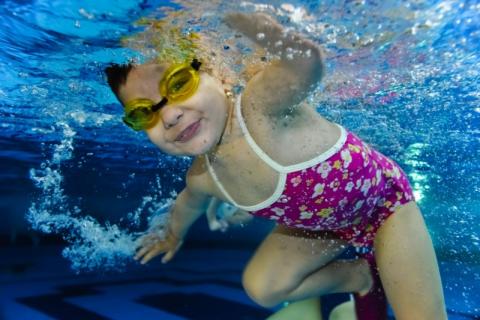Good hygiene is important for a fun day out with all the family

With the better weather, many families will be planning day trips over the coming weeks, so the Public Health Agency (PHA) is reminding everyone of the importance of personal hygiene when visiting farms and swimming pools.
Dr Philip Veal, Consultant in Health Protection at the PHA, said: “Summer is a great time for day trips, but we want people to have pleasant memories, so by following a few simple hygiene tips, you can have a fantastic time and stay well.
“Open farms and swimming pools can be great days out for all the family but it’s important to practise good personal hygiene at the appropriate times when visiting these places.
“All animals naturally carry a range of organisms, some of which can be transmitted to children and adults and can potentially cause severe infection, particularly in young children. For example, E. coli O157 is easily passed from animals to children, can spread easily within the household and may cause severe infection in young children.
“Cryptosporidium is another organism which causes an infection of the gastrointestinal tract. Symptoms include vomiting, abdominal cramps and watery diarrhoea. Cryptosporidium is a leading cause of infectious diarrhoea in humans in the UK and can occur through contaminated recreational waters, including swimming pools.”
To reduce the risk of illness, all adults and children should follow some simple steps to ensure a fun day out:
Advice for swimmers:
• Don't swim when you have diarrhoea or have had diarrhoea within the past 48hrs.
• Don't swim for 14 days after being diagnosed with Cryptosporidiosis.
• Take a shower before swimming and wash your hands after using the toilet or changing nappies.
• Please ensure that babies and children wear purpose made swimming nappies and take your child on bathroom breaks.
• Do not swallow water.
Advice for visits to the farm:
• Wash hands thoroughly using soap and water after handling animals or touching surfaces at the farm;
• Hands should always be washed before eating or drinking and after using the toilet;
• Antibacterial hand gels and wipes are not a substitute for washing hands, as gels and wipes may not adequately remove germs and bugs in the way that running water can;
• However, using such gels after hand washing with soap and water may reduce the risk of picking up these infections.
“A responsible adult should always supervise children’s personal hygiene to make sure it is carried out properly. By being aware and by taking some simple steps, we can all help to avoid illness and enjoy a fun day out,” concluded Dr Veal.
Ends
